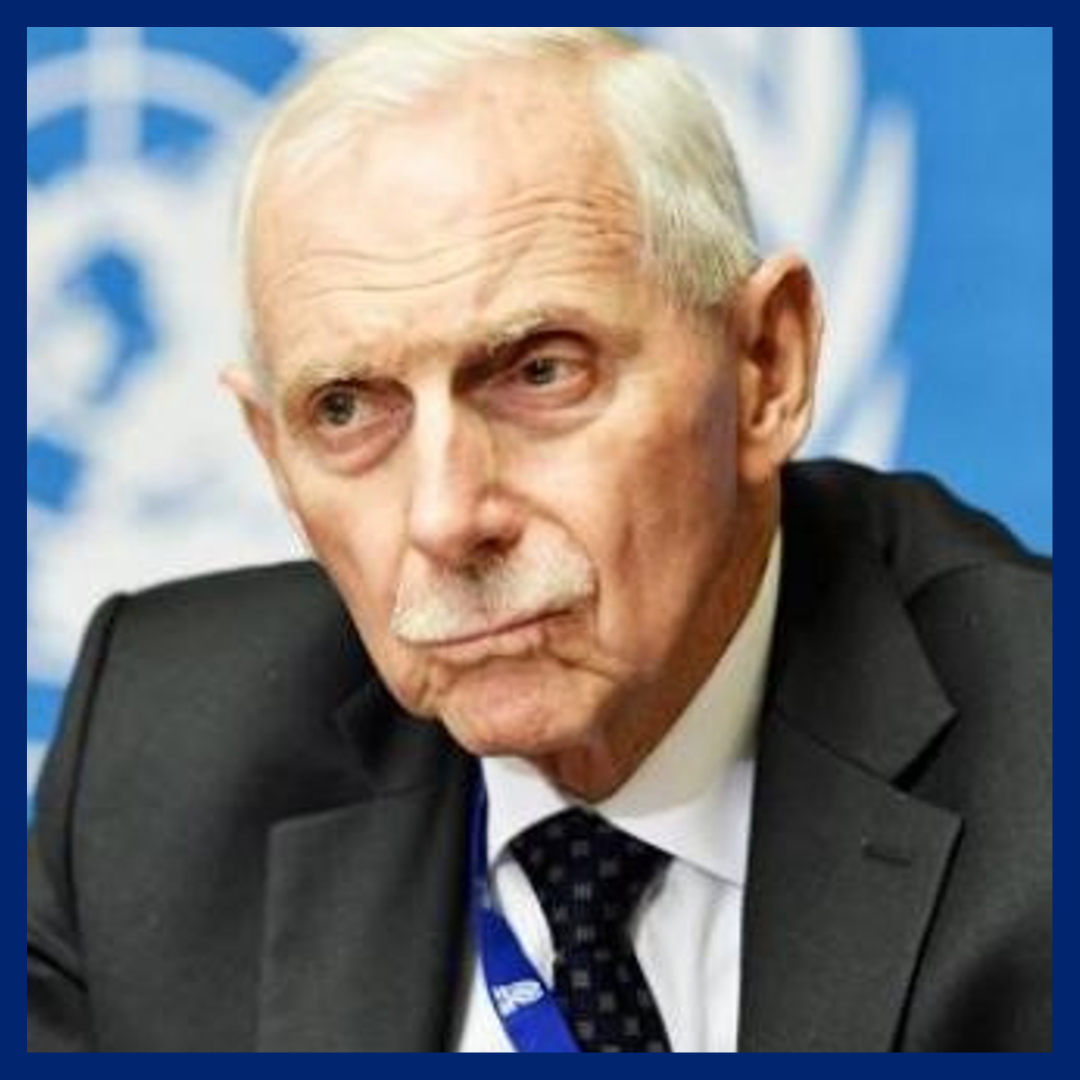Events
Basic Page Sidebar Menu Perry World House
At this event, Perry World House Distinguished Visiting Fellow Ambassador William Lacy Swing will examine the evolution of United Nations peacekeeping - from its origins in the aftermath of World War II, to the significant changes it underwent following the Cold War, to its prospects for the future.
Drawing on his experience leading UN peacekeeping missions, including its biggest ever mission in the Democratic Republic of the Congo (MONUC), Ambassador Swing will weigh how these missions succeeded and failed. He will also look at how they have changed in the past ten years, and make suggestions for next steps.
Following Ambassador Swing's initial remarks, he will sit down with Nicholas Sambanis, Professor and Chair of the Penn Political Science Department, for a conversation with the Penn community.
SPEAKER
 Ambassador William Lacy Swing has served as an American and United Nations diplomat for half a century. He was Ambassador to six countries – South Africa, the Democratic Republic of the Congo (DRC), Nigeria, Liberia, the Republic of the Congo, and Haiti – under four U.S. Presidents. Upon completion of his US diplomatic career in 2001, Swing then served in senior United Nations positions for seventeen years. From 2003 to 2008, he was Special Representative of the Secretary-General (SRSG) and Chief of the UN Peacekeeping Mission in the Democratic Republic of the Congo —the largest peacekeeping operation in UN history. Earlier, he was SRSG and Chief of Mission in Western Sahara (MINURSO), from 2001 to 2003. Swing was elected in 2008 to be Director General of the International Organization for Migration (IOM) and re-elected in 2013, completing his second term in 2018. Under his ten-year leadership, IOM expanded its membership and global footprint and became a United Nations Agency in 2016. Swing has been recognized by several foreign governments, including France, Japan, and Germany, and has also received several U.S. government awards, including the Presidential Certificate of Commendation and Distinguished Service, and Superior and Meritorious honor awards; and the Secretary of State’s Distinguished Service and Valor Awards. He received his B.D. from Yale University, and completed postgraduate studies at Tübingen University in Germany.
Ambassador William Lacy Swing has served as an American and United Nations diplomat for half a century. He was Ambassador to six countries – South Africa, the Democratic Republic of the Congo (DRC), Nigeria, Liberia, the Republic of the Congo, and Haiti – under four U.S. Presidents. Upon completion of his US diplomatic career in 2001, Swing then served in senior United Nations positions for seventeen years. From 2003 to 2008, he was Special Representative of the Secretary-General (SRSG) and Chief of the UN Peacekeeping Mission in the Democratic Republic of the Congo —the largest peacekeeping operation in UN history. Earlier, he was SRSG and Chief of Mission in Western Sahara (MINURSO), from 2001 to 2003. Swing was elected in 2008 to be Director General of the International Organization for Migration (IOM) and re-elected in 2013, completing his second term in 2018. Under his ten-year leadership, IOM expanded its membership and global footprint and became a United Nations Agency in 2016. Swing has been recognized by several foreign governments, including France, Japan, and Germany, and has also received several U.S. government awards, including the Presidential Certificate of Commendation and Distinguished Service, and Superior and Meritorious honor awards; and the Secretary of State’s Distinguished Service and Valor Awards. He received his B.D. from Yale University, and completed postgraduate studies at Tübingen University in Germany.
MODERATOR
 Professor Nicholas Sambanis is the Presidential Distinguished Professor of Political Science and Director of the Penn Program on Identity and Conflict at the University of Pennsylvania. Sambanis's research is focused on civil wars, ethnic conflict, and international relations. His articles have been published in the American Political Science Review, World Politics, The Journal of Conflict Resolution, and other journals. With Paul Collier, he conducted the first large nested research project in the civil war literature, combining quantitative and qualitative research in Understanding Civil War: Evidence and Analysis, two volumes published by the World Bank in 2005.
Professor Nicholas Sambanis is the Presidential Distinguished Professor of Political Science and Director of the Penn Program on Identity and Conflict at the University of Pennsylvania. Sambanis's research is focused on civil wars, ethnic conflict, and international relations. His articles have been published in the American Political Science Review, World Politics, The Journal of Conflict Resolution, and other journals. With Paul Collier, he conducted the first large nested research project in the civil war literature, combining quantitative and qualitative research in Understanding Civil War: Evidence and Analysis, two volumes published by the World Bank in 2005.
Since 2000, Sambanis has been working on questions of intervention with a focus on peacekeeping and peacebuilding. Together with Michael Doyle, he published the first analysis of the effectiveness of United Nations peacekeeping operations in an article published in the American Political Science Review in 2000. Their analysis was expanded in Making War and Building Peace, a book about United Nations peacebuilding, published by Princeton University Press in 2006. Currently, Sambanis is working on projects related to the causes and management of conflicts over self-determination as well as on a book on international relations theory, where he and co-authors are applying insights from social psychological theories of identity formation to explain nation-building and war.

